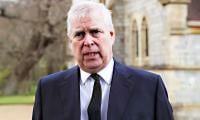Youth leaders summit: Pakistan, Afghanistan youth don’t want war, conflict
Islamabad: Youth from Pakistan and Afghanistan stood united for peace and harmony for better and brighter future of the region as they got together at the Youth Leaders Summit 2019 organised by Centre for Research and Security Studies (CRSS) and Afghan Studies Centre.
“This generation doesn’t want war and conflict. We want peace. We want to work on commonalities and connect people through art, culture, sports and literature,” said Abdul Maroof, an Afghan delegate while expressing his views in the conference. He suggested connecting IT hubs of both countries to make technology a common ground for advancing peace in the region.
While talking to The News, Suraya Azizi, another delegate from the neighbouring country, said that differences on both sides are created by politicians and media that can be bridged by knowing and understanding each other. “I have lived in Pakistan for nine years before we shifted back to Afghanistan. My sister studies here. I always feel like home when I am here,” she said adding that issues raised and suggestions made at such forums should be implemented by the governments to make such interactions effective.
A Pakistani delegate Warda Iftikhar urged for more such dialogues among youth across the border and expressed hope that such debates would help breaking stereotyping around the issues related to bilateral relations.
Around 50 youth leaders from Pakistan and Afghanistan participated in the Summit titled “Connecting Youth Beyond Boundaries for a Better Tomorrow.” The Summit was part of the Pakistan-Afghanistan Track 1.5/II initiative run by CRSS and its Afghan counterparts and funded by British Government since October 2015. The initiative is an effort to bridge mistrust between the two neighbours and encourage networking among the group members to help improve local perceptions as well as discuss the heightened tensions, sooth the bitter context and explore ways of improve cooperation.
The participants discussed issues related to education, trade, refugees, gender equality, building commonalities and role of media in bridging the gap between the two nations. Special Advisor to Prime Minister (SAPM) on Youth Affairs and Chairperson Prime Minister Youth Program Usman Dar was the chief guest on the occasion.
Afghan participants talked about ethnic stereotyping and problems they face in getting admissions in Pakistani educational institutions as registered Afghan refugees. They urged the Pakistani government to give special attention towards these issues.
In his opening remarks, Usman Dar said such forums are a great opportunity to connect and share views. He hoped that the Summit will contribute in building bridges between the two countries. He said that Prime Minister of Pakistan supports all such initiatives. He said that Pakistan youth agenda includes engaging young people from regional countries to bring stability in the region. He also briefed participants about the PM’s ‘Kamyab Jawan’ and Youth Internship Programme that are aimed at bringing the skill set of Pakistani youth at par with the international standards.
He said that the sitting government of Pakistan, under the leadership of Prime Minister Imran Khan, is analysing and looking forward to utilize every channel which can help build comprehensive bilateral relationship between Islamabad and Kabul.
In his remarks at the end of session on ‘How Media Can Play a Constructive Role in Pak- Afghan Relations?’ Editor ‘The News’ Amir Ghouri stressed to focus on situation of people surviving wars. “We discuss war and countries but it is actually the people that we need to discuss. Wars end and countries go on but people keep suffering and their lives are destroyed.” He said that people living in this region are the victims of nation state system. He recommended focusing on areas that don’t have any boundaries such as sports, art, music, entertainment and
Executive Director CRSS Imtiaz Gul welcomed the participants and introduced “Beyond Boundaries” initiative to participants.
Earlier, after a daylong summit, comprising three sessions on themes to bring the two countries closer and building on commonalities, young leaders from both sides came up with some recommendations.
The policy proposals by youth leaders from two sides included meaningful inclusion of young women in all policy-making processes in Pakistan and Afghanistan; two grand events (one in Kabul and Islamabad) per year, preceded by a month long art residencies, workshops and exhibitions; jointly managed WebTV that will have programs from both sides - free from governments' influence; free movement of Afghan products through Pakistan to China and India, while Islamabad should also be allowed access to Central Asian Republics; airing of Afghan dramas and movies in Pakistan and vice versa and creation of trade facilitation centres on both sides.
-
 Keith Urban, Nicole Kidman's Daughters Choose One Parent To Side With
Keith Urban, Nicole Kidman's Daughters Choose One Parent To Side With -
 Sarah Ferguson's Hidden Trait Exposed As Expert Dismantles Shadow Side To Her Personality
Sarah Ferguson's Hidden Trait Exposed As Expert Dismantles Shadow Side To Her Personality -
 Sarah Ferguson Backed By Powerful Friends Amid Epstein Fallout
Sarah Ferguson Backed By Powerful Friends Amid Epstein Fallout -
 PINK’s Latest Move Sparks Speculations About Replacing Major Celebrity On Show
PINK’s Latest Move Sparks Speculations About Replacing Major Celebrity On Show -
 Planetary Parade 2026: Here's How To See Six Planets Aligning Today
Planetary Parade 2026: Here's How To See Six Planets Aligning Today -
 Christopher Nolan Reveals Why He's A Fan Of 'Fast & Furious' Movies
Christopher Nolan Reveals Why He's A Fan Of 'Fast & Furious' Movies -
 Ben Affleck Unable To Accept A New Lover Post Jennifer Lopez Divorce As He Still Grieves End Of Bennifer 2.0
Ben Affleck Unable To Accept A New Lover Post Jennifer Lopez Divorce As He Still Grieves End Of Bennifer 2.0 -
 Why Is Demi Moore Being Called Ozempic Victim?
Why Is Demi Moore Being Called Ozempic Victim? -
 Kaley Cuoco Makes Honest Comparison Of 'Big Bang Theory' And 'Charmed' Gigs
Kaley Cuoco Makes Honest Comparison Of 'Big Bang Theory' And 'Charmed' Gigs -
 Robert Picardo Shares Surprising Reaction On Returning To The 'Star Trek' Franchise
Robert Picardo Shares Surprising Reaction On Returning To The 'Star Trek' Franchise -
 AI Feud Deepens As Musk Targets OpenAI Over Safety Concerns
AI Feud Deepens As Musk Targets OpenAI Over Safety Concerns -
 'Paranoid' Andrew Fears Assassination: 'Panic Is Spiralling'
'Paranoid' Andrew Fears Assassination: 'Panic Is Spiralling' -
 Israeli Minister Hits Back At Prince Harry
Israeli Minister Hits Back At Prince Harry -
 Thousands Of Google Accounts Could Be Misused By Hackers: Report
Thousands Of Google Accounts Could Be Misused By Hackers: Report -
 Prince Harry Ignores Question About Andrew
Prince Harry Ignores Question About Andrew -
 Ryan Gosling On What Makes 'Star Wars: Starfighter' Different From Other Franchise Films
Ryan Gosling On What Makes 'Star Wars: Starfighter' Different From Other Franchise Films



